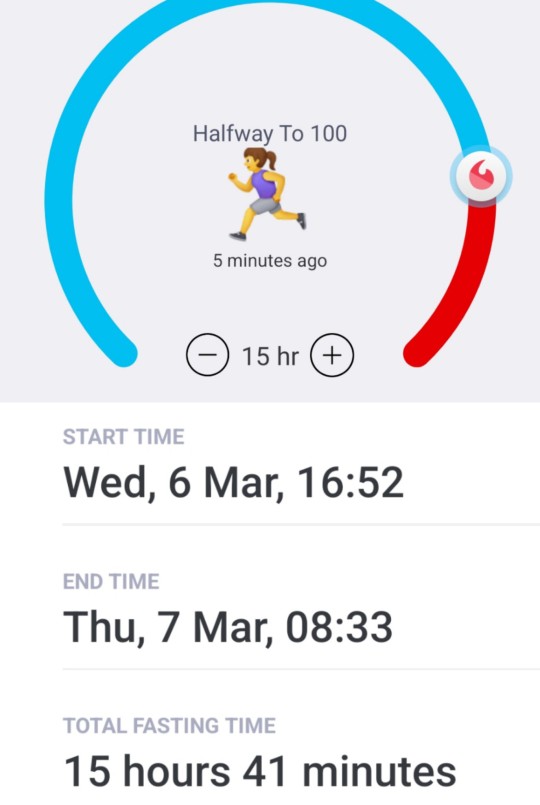#Closed loop insulin system
Explore tagged Tumblr posts
Text

So I saw this post the other day (and maybe because I've been diabetic a quarter of a century but "diabetes monitor" usually means this in my mind, not a sensor)

But anyways! Ink and T1D!Reader are friends with Sci who could definitely design a closed loop system for Ink! (For non diabetics, a closed loop system is a sensor and insulin pump that "talk to each other" to constantly dose and adjust in the background, allowing for better control and less frequent doses of insulin and less lows and yes I'm a Dexcom and Omnipod girlie)
10 notes
·
View notes
Text










Hmm, ok. I think it's finally time to accept that I have to stay peanut free. Any format. They need to go.
Anyhoo....Not gonna cry about it. It is what it is.
A very steady day. One walk and two short, medium effort home workouts.
Upper body strength after my walk. Then full body barre before lunch.
I was going to do something later, but the motivation wasn't there, for a few different reasons.
Still waiting for my omnipod/dexcom insulin pump loop system to settle down. No progress whatsoever, it seems.
That is definitely impacting both my physical and mental energy. Not exactly helping my emotional energy either.
But I keep tiptoeing through. I won't accept any other choice.
I've stuck pretty close to my macro targets, even with an extra (totally emotionally driven) snack. Mixed nuts (the ones I'm ok with), olive oil spray and sea salt. That's now my regular breakfast from tomorrow, unless i think of something else. That extra snack obviously wasn't my breakfast, lol!
The pic is from those final peanuts this morning.
I've got to put myself back into "take each day as it comes" mode.
Other "life stuff" going on right now, too. So I'm having to acknowledge this isn't a time to push.
I'm really glad I'm halfway through my 100 mile challenge to support the MIND mental health charity.
I'm seriously lacking donations, which saddens me, but I'm looking at it as a personal achievement interest, and the knowledge that I'm doing what I can to help out and show support for an excellent cause. I've also donated money myself.
Let's see what tomorrow brings....
#fitspo#fitspiration#fitblr#fitness#healthy living#health and fitness#fit#workout#fiton#suzieb-fit#mental health#mental illness#health and nutrition#diet and nutrition#healthy nutrition#dietary restrictions#allergens#allergic reaction#type one diabetic#type 1 diabetic#type 1 diabetes
11 notes
·
View notes
Text
Poor diabetes control: Latest technology may have a solution
Type 2 diabetes constitutes around 90% of diabetes in the world. While we do not have any control over Type 1 diabetes, Type 2 diabetes is mostly caused due to lifestyle factors such as poor diet, low physical activity, high BMI, and environmental hazards. Most of these factors can be eliminated by proper monitoring and discipline. And that is how nowadays health experts talk about diabetes reversal or putting diabetes into remission.
Apart from medications and introducing lifestyle changes like a proper nutrient-rich diet and daily physical activity, health care experts nowadays also take the help of the latest technology to keep poorly managed diabetes in control. The aim of current research and innovation in the field of diabetes is to enhance management as well as treatment so that a potential cure for the disease is discovered.
Implantable devices
One of the latest technological aids that have helped in the management of diabetes is wearable and implantable devices. These devices help track insulin release and have emerged as one of the most helpful advancements in the management of diabetes. The wearable devices are convenient and ensure the right tracking of blood sugar levels thereby helping the patient improve his diabetic condition.
Insulin pump
Insulin pumps are small devices that keep on delivering insulin supply rapidly and continuously with the help of a catheter that is placed under the patient’s skin. This particular pump is so designed that it keeps on administering the precise dosage of insulin all through the day the way a healthy pancreas naturally delivers insulin into the body.
A few products in this category also come with additional features such as continuous glucose monitoring (CGM) that keeps on providing real-time data related to the levels of blood sugar in the body.
Closed-loop insulin delivery system
The latest technology-aided implantable devices like closed-loop insulin systems automate insulin delivery as per the glucose levels. Such devices have an assembly of small machines like a CGM sensor, a control algorithm that monitors blood sugar levels and accordingly delivers insulin and an insulin pump.
Some of these devices have such a high level of technology that the algorithms in them also predict future blood sugar levels by analysing past and present trends and patterns and accordingly offer personalised suggestions for adjusting insulin dosage or even the dosage of lifestyle medications.
2 notes
·
View notes
Text
on a less meme worthy note man looping back to wesker not liking the healthcare system but still having some reliance on the heckin shot sends me because he's forced to either self administer or face the consequences of Not doing that and it's like man's backed into a corner about it and dang all of this could've been avoided if he just didn't act a whole fuckwit and oh idk maybe not infected himself in the first place??? and he knows it- he knows he's suffering and he did it to himself and he knows it isn't even remotely close to what he's done to others and so he just lets shit happen which is very unhealthy ... man needs this shit in like ... something similar to an insulin pump??? and also needs to get better coping skills and yeah of course it's hard for him to face what he did but he'll live with the physical reminders of it forever so what's the point of avoiding consequences when they're blatantly there
anyway even if he's massively depressed and uncertain of what to do with himself, he knows he can't do nothing and he can't do what he was doing before, and death would be the easy way out and in the end he wants to prove to himself that he isn't always going to be that frightened little boy who was taken from his home / that he isn't always going to be spencer's mirror- his journey of self improvement is so selfish in its reasoning, but from how he was raised it couldn't start because someone else wants him to be a better person, he has to want it for himself
and he also knows that the damage is done but he can choose to not do MORE damage and he can choose to have Morals and as time goes on he feels a little better because he's not running from consequences and whatever the outcome, he thinks it's worth it so maybe he can feel like he was also someone who could do something worthwhile in the end- and not just live as the weapon spencer wanted him to be / not to be spencer
he's slowly finding HIMSELF and that's admirable. it doesn't erase what he's done but damn it's admirable to make that change especially with how everything has gone in his life man thanks for coming to my tedtalk
#➤ one day there will be associated with my name the recollection of something frightful‚ of a crisis like no other before ╱ • • • meta ❞#one day there will be associated with my name the recollection of something frightful‚ of a crisis like no other before⎛ meta ⎠
6 notes
·
View notes
Text
💰 Paid Clinical Trials for Type 1 Diabetes: A Path to Innovation & Compensation
Type 1 Diabetes (T1D) is a chronic autoimmune condition where the immune system mistakenly attacks insulin-producing beta cells in the pancreas. Unlike Type 2 Diabetes, which is often linked to lifestyle factors, T1D typically develops in childhood or early adulthood and requires lifelong insulin therapy.
With advancements in medical research, clinical trials have become a crucial component in the search for better treatments and potential cures for T1D. Many of these trials offer financial compensation, making participation beneficial both for individuals and the broader medical community.
🔬 What Are Paid Clinical Trials?
Paid clinical trials are research studies that test new treatments, medications, devices, or procedures for Type 1 Diabetes while compensating participants for their time, effort, and sometimes travel expenses. These trials follow strict safety protocols and are conducted by pharmaceutical companies, universities, and research institutions.
🏥 Types of Clinical Trials for Type 1 Diabetes
Participants in T1D clinical trials may be involved in various types of studies, including:
New Drug Testing: Evaluating the safety and effectiveness of novel insulin therapies or glucose-lowering medications.
Artificial Pancreas Trials: Testing closed-loop insulin delivery systems for better blood sugar management.
Stem Cell & Immunotherapy Trials: Investigating potential regenerative treatments to restore beta-cell function.
Lifestyle & Dietary Studies: Exploring the impact of exercise, diet, or new monitoring techniques.
Device & Technology Trials: Assessing new CGMs (continuous glucose monitors) or insulin pumps.
💲 Why Participate in a Paid Clinical Trial?
Joining a Type 1 Diabetes clinical trial can be rewarding for several reasons:
🎯 1. Access to Cutting-Edge Treatments
Participants may receive innovative therapies before they become widely available.
💵 2. Financial Compensation
Most trials offer payment to compensate for time, travel, and inconvenience. Compensation varies depending on the trial phase, duration, and level of involvement.
🏥 3. Expert Medical Supervision
Enrollees get closely monitored by top endocrinologists and researchers, ensuring high-quality medical care.
🤝 4. Contribution to Scientific Advancements
By participating, you play a role in advancing research and improving future diabetes treatments.
📌 Who Can Participate?
Eligibility criteria differ for each study, but common requirements include:
✅ Diagnosed with Type 1 Diabetes ✅ Age restrictions (some trials focus on children, teens, or adults) ✅ Specific HbA1c levels or insulin dependency ✅ No recent participation in another clinical trial ✅ No serious medical conditions that could interfere with the study
Each study has its own inclusion and exclusion criteria, so it's important to review them carefully before applying.
🔎 How to Find Paid Clinical Trials for Type 1 Diabetes
Finding the right trial requires research and verification. Here are reliable sources to explore:
🌐 ClinicalTrials.gov – A government database listing global clinical trials. 🏥 Local hospitals & research centers – Many diabetes research programs recruit participants. 💊 Pharmaceutical companies – Companies developing diabetes treatments often conduct paid trials. 📢 Online diabetes communities – Forums and social media groups share trial opportunities.
🚨 Risks & Considerations
While clinical trials are highly regulated, there are potential risks, including:
⚠️ Side effects from new medications or treatments ⚠️ The possibility of receiving a placebo instead of active treatment ⚠️ Time commitment and travel requirements
Before enrolling, always read the informed consent form, ask about potential risks, and ensure the trial is approved by an ethics board.
✅ Final Thoughts: Is a T1D Clinical Trial Right for You?
Participating in a paid Type 1 Diabetes clinical trial can be a valuable opportunity to contribute to medical research, access cutting-edge treatments, and receive financial compensation. However, it’s essential to weigh the risks, eligibility, and commitment required before signing up.
🔍 Interested? Start by researching available trials today and discuss your options with your healthcare provider!
#type 1 diabetes clinical studies#heart disease clinical trials#cardiac clinical research#paid clinical trials for obesity#obesity trials near me
0 notes
Text
T1D Technology
Growing up with emerging technology is definitely a unique experience for everyone in their own way. Personally for me, my relationship with technology is a little different because of my disability as a type 1 diabetic. This is an adolescent, autoimmune, and permanent disease that stops the production of insulin in the body that destabilizes the control of blood sugar. The way I rely on technology is interestingly different from your average person due to the technological advances made in the recent years. I’m now able to give myself insulin and know my blood sugar levels through my phone that's connected to the devices attached to me. I am quite literally attached to technology 24/7. When I was younger this did not exist and instead I was poking and injecting myself with needles over 10x a day. It's scary to rely on technology like this because if for whatever reason the internet goes down or the apocalypse happens, how am I going to be safe and carry on? Technology like this sometimes doesn't always live up to the expectations, for example a recent new advancement has been something called the closed loop system which works with your insulin pump and your blood sugar monitor machine to work as one. So if your blood sugar goes up then the machine will automatically give you insulin to bring the glucose down. Sounds really nice, but a large flaw in this design was the over application of insulin. As T1D’s our blood sugar is affected by everything we do, physically, emotionally, and mentally and this new advancement doesn't always take that into consideration and creates a new problem. For example, exercise for me tends to lower my blood sugar. If I’m riding high blood sugars and I’m working out, but the new closed loop system doesn't know this and still gives me more insulin, I'm going to be dealing with extremely dangerous low glucose. I’ve been managing my body like this for over a decade since I was 10 years old, so It feels weird allowing this machine to do the work for me when I know my body and how it reacts better than anyone or any machine. Don't get me wrong, I'm so thankful for the access to medicine and technology today that those in the past never got to live to experience. But there are always flaws and issues with technology like this that do not consider all other outside factors. We should use, adapt and understand technology but we should also remind ourselves how to live when we don't have this type of access anymore.
1 note
·
View note
Text
Artificial Pancreas Device System Market: Transforming Diabetes Care
The Artificial Pancreas Device System (APDS) is a cutting-edge solution designed to replicate the natural glucose-regulating function of a healthy pancreas. This groundbreaking technology is a lifeline for millions managing diabetes, especially as the global prevalence of the disease continues to rise.
DelveInsight’s latest market analysis emphasizes the significant potential of APDS to improve patient outcomes and reduce the burden of diabetes.
Market Overview and Growth Drivers
The Artificial Pancreas Device System Market has witnessed rapid growth, driven by several key factors:
Increasing Diabetes Prevalence: With over 530 million people globally living with diabetes, the demand for innovative solutions like APDS is soaring.
Technological Progress: Advanced continuous glucose monitoring (CGM) systems and insulin pumps—core components of APDS—have enhanced accuracy and performance.
Regulatory Approvals: Recent FDA clearances of hybrid closed-loop systems have boosted market confidence and adoption rates.
Key Players Driving Innovation
The Artificial Pancreas Device System Comapanies is spearheaded by several industry leaders focused on advancing technology and improving user experiences. Key players include:
Medtronic
Tandem Diabetes Care
Insulet Corporation
Beta Bionics
Bigfoot Biomedical
These companies are heavily investing in research and development to enhance device functionality. For example, Medtronic’s MiniMed™ 780G system highlights the next generation of APDS technology, prioritizing automation and user convenience.
Strategic collaborations, partnerships, and acquisitions are also strengthening their market positions and accelerating innovation.
Challenges and Opportunities
Despite its rapid growth, the APDS market faces several challenges:
High Costs: The expense of these devices limits accessibility for many patients.
Regulatory Complexity: Stringent regulatory requirements can delay product launches.
Technological Integration: Ensuring seamless interaction between CGMs and insulin pumps remains a challenge.
However, these hurdles present opportunities for progress. Addressing affordability and improving access can unlock new markets and drive the widespread adoption of APDS technology.
Future Prospects
The APDS market is poised for further innovation, with a focus on patient-centered solutions and personalized healthcare. Future advancements are expected to include:
Enhanced automation and usability.
Smaller, more discreet device designs.
Improved integration with digital health platforms.
These developments will make APDS devices more accessible, efficient, and user-friendly, transforming the landscape of diabetes management.
Conclusion
The Artificial Pancreas Device System is more than a medical innovation—it represents hope for millions of people living with diabetes. As the market continues to evolve, its potential to redefine diabetes care becomes increasingly apparent. Collaboration among companies, researchers, and healthcare providers will be crucial in addressing challenges and unlocking the full potential of this groundbreaking technology.
Top Market Research Reports:
Varicose Vein Treatment Devices Market | Vascular Access Devices Market | Indwelling Catheters Market | Healthcare Competitive Benchmarking | Lymphoedema Market | Pacemakers Market | Myeloproliferative Neoplasms Market | Surgical Mask & Respirator Market | NK Cell Therapy Market | Novel Drug Delivery Devices Market | Testicular Neoplasm Market | Phototherapies for Psoriasis Market | Skin Neoplasm Market | Microscopy Device Market | Bone Growth Stimulator Market | Urea Cycle Disorders Market | Antibody Drug Conjugate Market | Penile Cancer Market | Total Knee Arthroplasty Market | Cardiac Implantable Electronic Devices Market | Dyspepsia Market | Lactose Intolerance Market | Medical Marijuana Market | Asperger Syndrome Market | Catheter Stabilization Devices Market
Another Reports Offered By Delveinsight
Leber’s Hereditary Optic Neuropathy Market | Myocardial Infarction Market | Ncfb Market | Nmibc Market | Nonmuscle Invasive Bladder Cancer Market | Pd-1 & Pdl1 Market | Prosthetic Joint Infection Market | Refractory Chronic Cough Market | Spasticity Market | T-cell-prolymphocytic Leukemia Market | Tim-3-next Generation Immunotherapy Market | Uncomplicated Urinary Tract Infections Market | Ventricular Dysfunction Market | Ventricular Hypertrophy Market | Wound Closure Devices Market | X Linked Hypophosphatemia Market
About DelveInsight DelveInsight is a leading market research and consulting firm specializing in the life sciences and healthcare industries. By delivering actionable insights, DelveInsight empowers pharmaceutical, biotech, and medical device companies to succeed in competitive and evolving markets.
Contact Information: Kanishk Email: [email protected]
0 notes
Text
Revolutionary Advancements in Type 1 Diabetes Treatment in 2025
The medical landscape is witnessing unprecedented transformations, and type 1 diabetes treatments in 2025 are at the forefront of this evolution. As researchers break new ground, patients can now anticipate innovative therapies that promise to improve quality of life and disease management. Here, we explore the most significant advancements in T1D 2025 treatment, examining their potential to reshape care protocols globally.
Understanding Type 1 Diabetes and Its Challenges
Type 1 diabetes, an autoimmune condition, results in the body's inability to produce insulin. This leads to elevated blood glucose levels, requiring lifelong insulin administration. Despite the progress in care, traditional treatments often fall short of offering patients the freedom and control they need. Challenges like hypoglycemia, lifestyle constraints, and long-term complications underscore the importance of innovative solutions.
Breakthrough Therapies for Type 1 Diabetes in 2025
1. Advanced Artificial Pancreas Systems
Artificial pancreas technology has taken a quantum leap in 2025. These closed-loop systems integrate continuous glucose monitors (CGMs) with insulin pumps, using advanced algorithms to automatically regulate blood sugar levels. New devices, such as next-generation hybrid closed-loop systems, offer improved accuracy, adaptability, and connectivity with mobile apps, empowering patients like never before.
Improved Algorithms: Enhanced AI-based algorithms predict glucose trends more precisely, reducing instances of hyper- and hypoglycemia.
Compact Designs: Sleeker and more portable systems make daily use more convenient.
Cloud-Based Insights: Integration with cloud platforms allows healthcare providers to monitor patient data remotely and make timely interventions.
2. Beta Cell Replacement Therapies
Beta cell replacement has emerged as a game-changer in type 1 diabetes treatment. Researchers have made strides in stem cell-derived beta cell therapies, offering a potential cure by restoring the body's ability to produce insulin naturally.
Stem Cell Innovations: Advances in stem cell research enable the generation of functional beta cells that can be transplanted into patients.
Encapsulation Technology: New encapsulation techniques protect transplanted cells from immune system attacks without requiring lifelong immunosuppressive drugs.
Clinical Trials Success: Several ongoing clinical trials show promising results, with patients achieving insulin independence for extended periods.
3. Immune Modulation Therapies
Immune modulation is transforming the way we approach the root cause of type 1 diabetes. In 2025, therapies targeting the autoimmune response have demonstrated significant potential to delay or even prevent disease progression.
Monoclonal Antibodies: These therapies block immune pathways responsible for beta cell destruction, preserving residual insulin production.
T Regulatory Cells (Tregs): Research on Tregs focuses on restoring immune tolerance, reducing the attack on beta cells.
Early Intervention: Immune modulation is especially effective when administered during the early stages of disease onset, offering hope for at-risk individuals.
4. Smart Insulin Formulations
The development of smart insulin formulations has revolutionized insulin therapy. These insulins activate in response to rising blood glucose levels, eliminating the need for precise dosing.
Glucose-Sensitive Insulins: New formulations mimic natural insulin secretion, responding dynamically to glucose changes.
Extended Efficacy: Long-acting variants reduce the frequency of injections, enhancing patient compliance.
Fewer Side Effects: With more controlled delivery, risks such as hypoglycemia are significantly minimized.
5. Non-Invasive Glucose Monitoring
In 2025, non-invasive glucose monitoring devices have moved from experimental stages to practical, widely available tools. These devices provide painless glucose tracking, encouraging better adherence to monitoring routines.
Wearable Tech: Smartwatches and skin patches now double as glucose monitors, offering continuous insights without finger pricks.
Enhanced Accuracy: Innovations in optical and biosensor technology ensure reliable readings.
User-Friendly Interfaces: Intuitive apps and visualizations help patients make informed decisions about their diet and insulin dosing.
The Role of Digital Health in Diabetes Management
Digital health platforms are playing a pivotal role in reshaping type 1 diabetes care. By leveraging data analytics, telemedicine, and patient-centric tools, these platforms enhance both patient outcomes and healthcare delivery.
1. AI-Driven Insights
AI-powered tools analyze vast amounts of glucose data to provide personalized recommendations for patients and healthcare providers.
2. Virtual Clinics
Telemedicine has streamlined access to endocrinologists and diabetes specialists, reducing geographical barriers to care.
3. Educational Resources
Interactive platforms educate patients about disease management, empowering them to take proactive roles in their treatment plans.
Future Outlook: Towards a Cure for Type 1 Diabetes
The year 2025 represents a turning point in the fight against type 1 diabetes. While these innovations bring us closer to a cure, the journey is far from over. Collaborative efforts between researchers, pharmaceutical companies, and healthcare systems will be key to translating these breakthroughs into accessible solutions for all.
As we step into a new era of diabetes care, one thing is clear: hope is on the horizon for millions of individuals living with type 1 diabetes.
0 notes
Text
The Role of Technology in Diabetes Management: Tools for Better Control
Introduction:
In recent years, technology has transformed the way we manage chronic health conditions, and diabetes is no exception. With advancements in monitoring devices, apps, and wearable technology, managing diabetes has become more efficient, accurate, and accessible. This blog explores the latest technological tools available for diabetes management and how they can help you lead a healthier, more active life.
1. Continuous Glucose Monitors (CGMs): Real-Time Blood Sugar Tracking
Gone are the days of frequent finger pricks to check your blood sugar levels. Continuous Glucose Monitors (CGMs) provide real-time data on your blood glucose levels throughout the day. These devices work by attaching a small sensor under the skin, which measures glucose levels in the interstitial fluid (the fluid between your cells).
Benefits of CGMs:
Continuous monitoring: You get instant feedback on your blood sugar, making it easier to adjust your diet or insulin intake in real-time.
Alerts and alarms: CGMs send notifications if your blood sugar levels are too high or too low, so you can take action before it becomes dangerous.
Trend tracking: Many CGMs have apps that help you track trends in your blood sugar levels, allowing for better long-term management.
Popular CGMs like the Freestyle Libre, Dexcom G6, and Medtronic Guardian have become invaluable tools for many people with diabetes.
2. Insulin Pumps: Smarter Insulin Delivery
For people with Type 1 diabetes or those with insulin-dependent Type 2 diabetes, insulin pumps can provide more precise and consistent insulin delivery compared to injections. These devices deliver insulin through a small tube that’s inserted under the skin, mimicking the function of a healthy pancreas.
How Insulin Pumps Help:
Continuous delivery: Insulin is delivered in small, consistent doses (basal insulin) throughout the day, and you can give extra doses (bolus insulin) at mealtime.
Customizable settings: You can adjust your insulin levels based on activity, food intake, or blood sugar patterns.
Reduced need for injections: With an insulin pump, you’ll need fewer injections, which can improve convenience and comfort.
Some insulin pumps, like the Omnipod and Medtronic MiniMed, also integrate with CGMs, creating an advanced closed-loop system for automatic insulin adjustments based on real-time glucose readings.
3. Diabetes Management Apps: Keep Track of Your Health on the Go
Smartphone apps have made it easier than ever to manage diabetes. There are numerous apps designed to help you track your food, exercise, medication, and blood sugar levels. These apps help you gain insight into how different factors affect your blood sugar, and many sync with other devices like CGMs and insulin pumps for seamless tracking.
Key Features of Diabetes Apps:
Food logging: Apps like Carb Manager or MySugr help you log your meals and track carbohydrate intake, which is critical for managing diabetes.
Exercise tracking: Many apps sync with fitness trackers (like Fitbit or Apple Watch), allowing you to monitor your physical activity and how it impacts your glucose levels.
Medication reminders: Apps can send alerts to remind you when to take your medication or check your blood sugar.
Data analysis: Apps like BlueLoop and Diasend help you analyze trends in your blood sugar, diet, and activity, making it easier to adjust your diabetes management strategy.
4. Wearable Devices: Monitoring Activity, Heart Health, and More
Wearable devices, such as fitness trackers and smartwatches, can complement your diabetes management routine by monitoring physical activity, heart rate, sleep patterns, and even stress levels. Devices like the Apple Watch or Fitbit provide valuable data that can help you better understand the impact of your daily activities on your blood sugar levels.
Benefits of Wearable Devices for Diabetes Management:
Track physical activity: Regular exercise is essential for managing diabetes, and wearables help you stay on top of your workouts.
Monitor heart health: People with diabetes are at a higher risk for heart disease, so keeping track of heart rate and blood pressure is crucial.
Sleep monitoring: Poor sleep can negatively affect blood sugar control. Wearable devices can track your sleep patterns and help you identify ways to improve your rest.
Stress management: Many wearables now have stress-tracking features that monitor changes in heart rate variability, helping you manage stress and its effect on blood sugar.
5. Telemedicine: Virtual Doctor Visits for Convenient Care
Telemedicine is becoming an increasingly popular way to receive healthcare from the comfort of your home, and it has proved particularly helpful for people with chronic conditions like diabetes. Virtual doctor visits allow you to consult with your healthcare provider without having to leave your home, which is especially beneficial for people living in rural areas or those with mobility issues.
Advantages of Telemedicine for Diabetes Care:
Convenience: You can schedule consultations with your doctor or diabetes educator from anywhere.
Remote monitoring: Healthcare providers can track your glucose data from your CGM or insulin pump and make adjustments to your treatment plan.
Access to specialists: Telemedicine makes it easier to connect with diabetes specialists or nutritionists, ensuring that you receive expert care.
Many hospitals and clinics offer telemedicine services, and some even provide virtual diabetes management programs to help you improve your health.
6. Smart Insulin Pens: Accurate Dosing with Every Injection
Smart insulin pens are a recent advancement that makes injecting insulin more accurate and convenient. These pens record each dose you take and sync the data with a mobile app, providing a detailed history of your insulin use. Some pens can also help you calculate your dose based on your current blood sugar levels and carbohydrate intake.
How Smart Insulin Pens Help:
Accurate dosing: Smart pens help you avoid mistakes when calculating insulin doses, ensuring you get the right amount every time.
Track injections: These pens automatically track when and how much insulin you’ve injected, so you don’t need to manually log the information.
Data analysis: Syncing your smart insulin pen with an app can provide insights into your insulin use and help you fine-tune your management routine.
Popular smart pens include the NovoPen 6 and InPen.
7. Artificial Intelligence and Diabetes: The Future of Diabetes Care
Artificial Intelligence (AI) is starting to play a significant role in diabetes management. AI-powered systems are capable of analyzing vast amounts of data from CGMs, insulin pumps, and other devices to provide insights and predictive models that help optimize diabetes care.
How AI Is Shaping the Future:
Predictive analytics: AI can predict changes in blood sugar levels based on past data, helping you prepare for spikes or drops.
Personalized care: AI can help tailor your diabetes treatment based on your unique health data and lifestyle factors.
Automated insulin delivery: Some experimental systems are using AI to create a closed-loop system, where insulin is automatically adjusted based on real-time blood sugar levels.
Conclusion: Embracing Technology for a Healthier Life with Diabetes
Technology is revolutionizing the way people with diabetes manage their condition. From continuous glucose monitors and insulin pumps to smartphone apps and wearables, these innovations are making it easier than ever to track and manage your blood sugar levels. By embracing these tools, you can take control of your diabetes, improve your health, and live a more active and fulfilling life.
If you haven’t already, consider incorporating some of these technologies into your diabetes care routine and see how they can help you manage your condition with greater ease and confidence.
0 notes
Text
Rise of Hybrid Closed-Loop Insulin Delivery Systems in Diabetes Management
Rise of Hybrid Closed-Loop Insulin Delivery Systems in Diabetes Management #Sciencenews #Diabetes #healthnews
Diabetes is a chronic condition that affects millions globally, requiring continuous management of blood glucose levels. As of 2023, it is estimated that 150–200 million individuals worldwide require insulin to manage their diabetes, particularly those with Type 1 diabetes. Despite numerous advancements in diabetes management technology, many patients still struggle to maintain optimal glycemic…
0 notes
Text
Innovative Diabetes Treatments at Hyderabad’s Leading Diabetes Hospitals
Diabetes is a growing health concern worldwide, and managing this chronic condition requires continuous advancements in treatment options. Hyderabad, one of India’s leading healthcare hubs, is home to several renowned diabetes hospitals that are at the forefront of introducing innovative treatments. These hospitals combine cutting-edge technology with personalized care to provide patients with effective, long-term solutions for managing diabetes. Here’s a look at some of the groundbreaking diabetes treatments available at Hyderabad’s leading diabetes hospitals.
Continuous Glucose Monitoring (CGM)
One of the most significant advances in diabetes care is the use of Continuous Glucose Monitoring (CGM) systems. CGMs provide real-time data on blood sugar levels, allowing patients and healthcare providers to monitor fluctuations throughout the day without the need for finger-prick tests.
Hyderabad’s top diabetes hospitals use CGMs to give patients a clearer picture of how their blood glucose levels are behaving, especially during the night or after meals. These devices send alerts when blood sugar levels are too high or too low, helping prevent hypoglycemia or hyperglycemia.

The continuous stream of data collected by CGMs also allows doctors to make more accurate decisions about insulin dosing and lifestyle adjustments. With this advanced technology, diabetes management becomes more precise, reducing the risk of long-term complications like nerve damage, eye problems, or kidney disease.
Insulin Pumps for Advanced Diabetes Management
For patients with Type 1 diabetes or advanced Type 2 diabetes, insulin pumps are becoming a revolutionary treatment option. These small, portable devices deliver a constant supply of insulin throughout the day, mimicking the natural release of insulin by the pancreas.
Insulin pumps are especially helpful for patients who struggle with regulating their insulin levels using traditional injections. In Hyderabad’s leading diabetes hospitals, patients can benefit from personalized insulin pump therapy, where the device is calibrated based on individual needs, lifestyle, and blood glucose patterns.
This method offers a level of convenience and flexibility that traditional insulin injections can't provide. Patients using insulin pumps enjoy more consistent blood sugar control, reducing the risk of diabetes-related complications.
Stem Cell Therapy for Diabetes Treatment
A cutting-edge development in diabetes treatment is stem cell therapy, which has shown promising results in potentially reversing Type 1 diabetes. Some leading diabetes hospitals in Hyderabad are exploring the use of stem cells to regenerate insulin-producing cells in the pancreas. This innovative treatment aims to reduce or eliminate the need for insulin injections by encouraging the body to produce its own insulin again.
While stem cell therapy is still in the experimental phase, early research is showing positive outcomes, especially for Type 1 diabetic patients who no longer respond to traditional treatments. Hyderabad’s hospitals are part of clinical trials and research studies exploring the potential of stem cells in diabetes care, offering hope for a future where diabetes can be cured, not just managed.
Artificial Pancreas Systems (APS)
The Artificial Pancreas System (APS) is another revolutionary treatment that combines insulin pumps with continuous glucose monitoring systems to automatically adjust insulin delivery based on blood sugar levels. Essentially, the APS acts as a "closed-loop" system, providing a more automated approach to diabetes management.
This technology is especially beneficial for patients with Type 1 diabetes, who need constant insulin adjustments throughout the day. In leading hospitals in Hyderabad, patients can be introduced to APS systems, which help them maintain near-normal blood sugar levels without the need for frequent manual interventions. The APS system continuously checks blood glucose levels and administers insulin automatically, helping patients live more freely without constant monitoring.
Advanced Laser Treatments for Diabetic Retinopathy
Diabetes can cause complications in the eyes, such as diabetic retinopathy, a condition that damages the blood vessels in the retina. If left untreated, it can lead to blindness. Hyderabad’s advanced diabetes hospitals offer laser treatments to prevent or treat this condition before it causes irreversible damage.
The most common type of laser therapy used in Hyderabad is focal laser treatment, which targets areas of the retina that are leaking fluid and causing vision problems. Another form of treatment, pan-retinal laser photocoagulation, is used to reduce the risk of vision loss in patients with advanced diabetic retinopathy by reducing the growth of abnormal blood vessels in the retina.
These treatments are performed by skilled ophthalmologists and are highly effective in managing diabetic retinopathy, preserving vision, and preventing further complications.
Bariatric Surgery for Obese Diabetic Patients
For patients with Type 2 diabetes who are also obese, bariatric surgery has emerged as a promising option for managing both conditions. Several leading hospitals in Hyderabad offer bariatric procedures like gastric bypass and sleeve gastrectomy, which not only promote significant weight loss but also lead to improved blood sugar control.
Studies have shown that bariatric surgery can lead to remission of Type 2 diabetes in some patients, especially those who have been struggling to control their blood sugar levels with lifestyle changes and medications. Hospitals in Hyderabad that specialize in diabetes care have a dedicated team of surgeons and endocrinologists who work together to provide the best possible outcomes for patients considering this option.
Diabetes Education and Personalized Lifestyle Programs
While medications and treatments are crucial, education and lifestyle management play an equally important role in managing diabetes. Hyderabad’s top diabetes hospitals offer personalized lifestyle programs that include one-on-one consultations with dietitians, exercise physiologists, and diabetes educators.
These programs help patients learn how to manage their condition through proper nutrition, exercise, stress management, and regular monitoring. Many hospitals also offer workshops and group sessions to educate patients about the latest developments in diabetes care and how they can incorporate these innovations into their daily routines.
Personalized diet plans, exercise regimens, and mindfulness techniques are tailored to meet the needs of each patient, ensuring they receive comprehensive care and support to maintain their health.
Use of AI and Big Data in Diabetes Management
Some of Hyderabad's leading diabetes hospitals are leveraging Artificial Intelligence (AI) and big data to enhance diabetes care. AI algorithms analyze data from various sources, including blood glucose levels, medical history, and lifestyle factors, to predict trends and provide personalized treatment recommendations.
Big data allows healthcare providers to track patient outcomes in real-time, allowing doctors to make more informed decisions and improve overall care. By integrating AI into diabetes management, Hyderabad’s hospitals are not only improving the accuracy of diagnosis but also offering tailored treatments that lead to better long-term outcomes.
Conclusion
Hyderabad’s leading diabetes hospitals are embracing a future of innovative treatments that go beyond traditional diabetes management. From advanced glucose monitoring systems to stem cell therapies and artificial pancreas systems, these hospitals are at the forefront of a revolution in diabetes care. By combining technology with personalized care, Hyderabad is setting a new standard in how diabetes is treated, providing patients with hope for a healthier and more fulfilling life.
Whether you’re newly diagnosed or have been managing diabetes for years, the advanced treatments available in Hyderabad’s diabetes hospitals offer a range of options to improve your quality of life and reduce the risk of complications. With ongoing research and the development of new technologies, the future of diabetes care in Hyderabad looks brighter than ever.
#best diabetes doctor in Hyderabad#best diabetologist Hyderabad#best diabetologist in Hyderabad#diabetologist Hyderabad#best diabetic clinic in Hyderabad
0 notes
Text





Day two of following the recommendations in Mindy Pelz's "Menopause Reset" book.
Well, a couple of them for now.
Circadian rhythm helpers.
No caffeine for two hours, and sitting in the light of the rising sun.
Plus what I already do anyway, a morning workout.
Upper body strength. Always a preferred start to my day.
Back to normal life after a couple of iffy ones.
My diabetic appointment went well yesterday. My new consultant is actually wonderful. Love the guy! And not just because he's ok'd me to go on the "closed loop" treatment system.
That's where my CGM (glucose monitor) and insulin pump link up and take the thought and effort out of my background insulin delivery.
A game changer, hopefully.
It's potentially a long wait, but I'm in the queue. What a relief! And a weight off my poor, cortisol drained brain, lol.
Speaking of which, I'm booked in for a blood test in afew weeks to check several things including those cortisol levels.
But back to today. I'm going to make it a good one 😁
#fitspo#fitspiration#fitblr#fitness#healthy living#health and fitness#fit#workout#fiton#suzieb-fit#cortisol#hormonal imbalance#type one diabetic#type 1 diabetic#type 1 diabetes
19 notes
·
View notes
Text
Revolutionizing Diabetes Care: The Rise of Insulin Pumps

The global insulin pumps market is expected to experience substantial growth, driven by an increasing prevalence of diabetes, advancements in pump technology, and a growing preference for minimally invasive management options for diabetes care. According to the report, the market is projected to grow at a compound annual growth rate (CAGR) of around 14% over the forecast period from 2022 to 2028. With revenue reaching over USD 5 billion in 2022, the market is anticipated to approach USD 8 billion by 2028.
What are Insulin Pumps?
Insulin pumps are medical devices used for delivering insulin in a continuous and controlled manner for people with diabetes. They help maintain blood sugar levels within target ranges, reducing the frequency of daily injections. With automated delivery systems, insulin pumps improve patients' quality of life by offering flexibility and improved blood glucose control.
Get Sample pages of Report: https://www.infiniumglobalresearch.com/reports/sample-request/41627
Market Dynamics and Growth Drivers
Key factors driving the growth of the global insulin pumps market include:
Rising Diabetes Prevalence: The global increase in both Type 1 and Type 2 diabetes cases, driven by lifestyle factors and genetic predispositions, is a primary factor fueling the insulin pumps market.
Technological Advancements: Newer insulin pumps feature enhanced algorithms, Bluetooth connectivity, and integration with continuous glucose monitors (CGMs), improving accuracy and patient convenience. These advancements are increasing the appeal of insulin pumps as a preferred diabetes management solution.
Demand for Minimally Invasive Diabetes Management: Insulin pumps are minimally invasive, allowing patients to manage diabetes without multiple daily injections. The benefits of reduced pain and increased comfort are motivating more individuals to adopt insulin pump therapy.
Rising Awareness and Access to Diabetes Care: Awareness campaigns and health initiatives are improving access to diabetes management solutions in various regions, contributing to the market growth. Patients are increasingly educated on the advantages of insulin pump therapy, enhancing adoption rates.
Regional Analysis
North America: The North American region, particularly the United States, holds a significant share of the global insulin pumps market. The high prevalence of diabetes, coupled with advanced healthcare infrastructure and robust insurance coverage, drives demand in this region.
Europe: Europe is also a prominent market, led by countries like Germany, the U.K., and France. A high awareness of advanced diabetes management solutions, along with increasing healthcare expenditure, supports the adoption of insulin pumps in the region.
Asia-Pacific: Asia-Pacific is anticipated to witness the fastest growth over the forecast period due to rising diabetes cases, improving healthcare infrastructure, and increasing awareness. Countries such as China, Japan, and India are witnessing high demand for advanced diabetes management technologies.
Latin America, Middle East, and Africa: These regions are gradually emerging in the insulin pumps market due to growing healthcare investments and awareness programs. Although adoption rates are currently low compared to other regions, market potential is increasing.
Competitive Landscape
The insulin pumps market is highly competitive, with leading players investing in R&D, technological innovation, and strategic partnerships. Notable companies include:
Medtronic: A key player in insulin pump technology, Medtronic offers advanced products like MiniMed insulin pumps that integrate with CGM systems. The company's innovations in closed-loop systems enhance its competitive position.
Insulet Corporation: Known for its Omnipod insulin pump, Insulet specializes in tubeless, wearable pumps that offer convenience and ease of use. The company’s focus on simplicity and mobility appeals to a wide user base.
Tandem Diabetes Care: Tandem provides insulin pumps featuring touch-screen technology and Bluetooth connectivity. Its tX2 insulin pump is popular for its integration with CGMs and ease of remote management.
Roche: Roche’s Accu-Chek insulin pumps emphasize safety, portability, and reliability. The company has a strong presence in the European market and focuses on patient-centric innovations.
Ypsomed: A Swiss company, Ypsomed offers mylife insulin pumps designed for ease of use and customization. The company collaborates with various CGM providers to offer integrated solutions, enhancing patient experience.
Report Overview : https://www.infiniumglobalresearch.com/reports/global-insulin-pumps-market
Challenges and Opportunities
Despite promising growth, the insulin pumps market faces certain challenges, such as the high cost of devices, insurance complexities, and limited accessibility in low-income regions. Additionally, technical issues and risk of infection at the insertion site can hinder adoption among some patients.
However, there are considerable growth opportunities, including:
Expansion in Emerging Markets: The increasing prevalence of diabetes and improving healthcare access in emerging economies present substantial growth potential for insulin pump manufacturers.
Technological Integration with Mobile and IoT Devices: Continued innovation in IoT and mobile applications enables remote monitoring and real-time adjustments, making pumps more user-friendly and appealing to tech-savvy consumers.
Continuous Development in Artificial Pancreas Systems: Progress in closed-loop insulin delivery systems, or “artificial pancreas” solutions, offers a promising future in diabetes management. These advancements may expand the use of insulin pumps and improve patient outcomes.
Conclusion
The global insulin pumps market is on a robust growth trajectory, with revenue expected to grow from over USD 5 billion in 2022 to nearly USD 8 billion in 2028 at a CAGR of around 14%. Increasing diabetes prevalence, patient preference for minimally invasive management, and ongoing technological advancements are driving this growth. With opportunities in emerging markets and continuous innovation in device connectivity and ease of use, the insulin pumps market is set to become an essential component of diabetes care worldwide.
Discover More of Our Reports
Vietnam Plastic Recycling Market
Vietnam Antimicrobial Food Packaging Additives Market
0 notes
Text
Digital Diabetes Management Market Growth Trends and Strategies, 2030
The global digital diabetes management market size is expected to reach USD 21.9 billion by 2030, expanding at a CAGR of 8.3% from 2023 to 2030, according to a new report by Grand View Research, Inc. Major factors contributing to the market growth are the growing incidences of diabetes globally, the increasing number of product launches, and innovation in technologies such as predictive analytics and artificial intelligence (AI).
Data analytics and artificial intelligence are now an integral part of digital solutions for diabetics. AI is gaining rapid attention due to its ability to harness massive volumes of patient information. Digital diabetes management tools help patients analyze their glucose levels and pattern. They also help patients decide on food intake and dosage of insulin. The number of smartphone apps for disease management has seen a monumental rise over the past few years, giving the market a major boost. For instance, in September 2019, Abbott entered into a non-exclusive partnership with Sanofi to integrate cloud-connected insulin pens (Sanofi) with FreeStyle Libre mobile application (Abbott) to ease the management process of diabetes.
Gather more insights about the market drivers, restrains and growth of the Digital Diabetes Management Market
Detailed Segmentation:
Product Insights
The continuous blood glucose monitoring system segment held the largest revenue share of over 40.6% in 2022, owing to its advanced features such as compatibility with smart devices that serve as display devices. Moreover, it can be set to send custom alerts to patients when certain glucose thresholds are reached. Based on products, the market has been segmented into smart insulin pens, continuous blood glucose monitoring systems, smart glucose meters, smart insulin pumps, and apps. Diabetes management apps are divided into digital diabetes management apps and weight & diet management apps.
End-use Insights
Based on end-use, the digital diabetes management market is segmented into hospitals, home settings, and diagnostic centers. Hospitals can use digital platforms or mobile apps that provide diabetes education, self-management tools, and support, as well as offer them to patients. With these technologies, patients may better understand their condition, monitor their blood sugar levels, take control of their medication, and get advice from medical specialists.
Type Insights
The wearable devices segment held the largest revenue share of 56.9% in 2022, and the segment is expected to expand at the fastest CAGR of 8.4% over the forecast period. The segment's growth is majorly attributed to technological advancements such as the advent of artificial intelligence, the launch of new products such as closed-loop pump systems and smart insulin patches, and the growing adoption of self-insulin delivery devices in diabetes management. The market is segmented based on type into wearable devices and handheld devices.
Regional Insights
North America led the market in 2022 with a revenue share of over 38.0%, aided by the availability of advanced technologies and the recent approval of many digital blood glucose patient monitoring devices in the region. For instance, in January 2022, Insulet Corporation announced that it had received clearance from the U.S. FDA for its Omnipod 5 Automated Insulin Delivery System. It is a unique system that integrates with Dexcom G6 Continuous Glucose Monitoring (CGM). It facilitates remote patient monitoring and data transfer through the Omnipod 5 mobile app with its integrated SmartBolus Calculator. The increasing geriatric population and the growing burden of diabetes due to lifestyle changes are expected to boost regional market growth.
Browse through Grand View Research's Medical Devices Industry Research Reports.
• The global artificial hip and knee joints market size was estimated at USD 12.57 billion in 2023 and is projected to grow at a CAGR of 2.85% from 2024 to 2030.
• The global breast shells market size was valued at USD 71.0 million in 2023 and is projected to grow at a compound annual growth rate (CAGR) of 3.7% from 2024 to 2030.
Key Companies & Market Share Insights
Major market players focus on adopting new technologies and introducing advanced products, taking advantage of important cooperation activities, and exploring acquisitions and government initiatives to offer their customers better services and strengthen their market presence. For instance, in August 2022, Abbott Laboratories announced its collaboration with WeightWatchers to launch new digital tools to emphasize the importance of weight loss and controlling blood sugar in diabetes patients. Abbott integrated its recent digital glucose monitoring technology into WeightWatchers' diabetes-specific program, as a part of this strategic partnership.
In another instance, in May 2021, Ascensia Diabetes Care launched a browser-based diabetes management and analytics platform, GlucoContro.online, that provides data-driven care for people who use any of the CONTOUR blood glucose monitoring meters. In September 2021, Ypsomed AG partnered with Dexcom, a market leader in CGM systems. This partnership was intended to make data from Dexcom G6 CGM devices available in the Ypsomed application in a smart device.
Following are some of the major participants in the global digital diabetes management market:
• Abbott
• Medtronic
• F. Hoffmann-La Roche Ltd.
• Bayer AG
• Sanofi
• Dexcom, Inc.
• LifeScan, Inc.
• Insulet Corporation
• Ascensia Diabetes Care Holdings AG
• B. Braun Melsungen AG
Digital Diabetes Management Market Segmentation
Grand View Research has segmented the global digital diabetes management market based on product, type, end-use, and region:
Digital Diabetes Management Product Outlook (Revenue, USD Million, 2018 - 2030)
• Smart Glucose Meter
• Continuous Blood Glucose Monitoring System
• Smart Insulin Pens
• Smart Insulin Pumps
• Apps
o Digital Diabetes Management Apps
o Weight & Diet Management Apps
Digital Diabetes Management Type Outlook (Revenue, USD Million, 2018 - 2030)
• Wearable Devices
• Handheld Devices
Digital Diabetes Management End Use Outlook (Revenue, USD Million, 2018 - 2030)
• Hospitals
• Home settings
• Diagnostic centers
Digital Diabetes Management Regional Outlook (Revenue, USD Million, 2018 - 2030)
• North America
o U.S.
o Canada
• Europe
o Germany
o U.K.
o France
o Italy
o Spain
o Sweden
o Norway
o Denmark
• Asia Pacific
o Japan
o China
o India
o Australia
o Thailand
o South Korea
• Latin America
o Brazil
o Mexico
o Argentina
• Middle East & Africa
o South Africa
o Saudi Arabia
o UAE
o Kuwait
Order a free sample PDF of the Digital Diabetes Management Market Intelligence Study, published by Grand View Research.
#Digital Diabetes Management Market#Digital Diabetes Management Market size#Digital Diabetes Management Market share#Digital Diabetes Management Market analysis#Digital Diabetes Management Industry
0 notes
Photo
having been diagnosed with T1D back in August, I find Kyle and Scott to be great representation also, Kyle can still eat cake, he just has to worry about the three-hour fat delay from that cake (all animal and plant proteins are high in saturated fat). plus, given how Scott's insulin works in both "Basic Cable" and The Fractured but Whole, I like to think the world of South Park has a way faster insulin than Novolog/Humalog (and pump-compliant as opposed to Fiasp, Lyumjev, and Afrezza). new headcanon: Kyle's on a fully-closed loop patch pump system, so he can eat and drink all the sweets he wants. I mean, this is South Park - they have a mad scientist in town who normally puts multiple asses on one-assed animals. He probably made a stupid-fast insulin while trying to put five asses on a bacterium.

Get it, because he’s diabetic?
480 notes
·
View notes
Text
Artificial Pancreas To Treat Diabetics: How Will It Help Release Insulin?
An artificial pancreas, also known as a closed-loop insulin delivery system, is a technological advancement designed to help people with diabetes manage their blood glucose levels more effectively. It works by automating the delivery of insulin based on continuous glucose monitoring. Here’s how it helps release insulin and manage diabetes: Components of an Artificial Pancreas Continuous Glucose…
0 notes